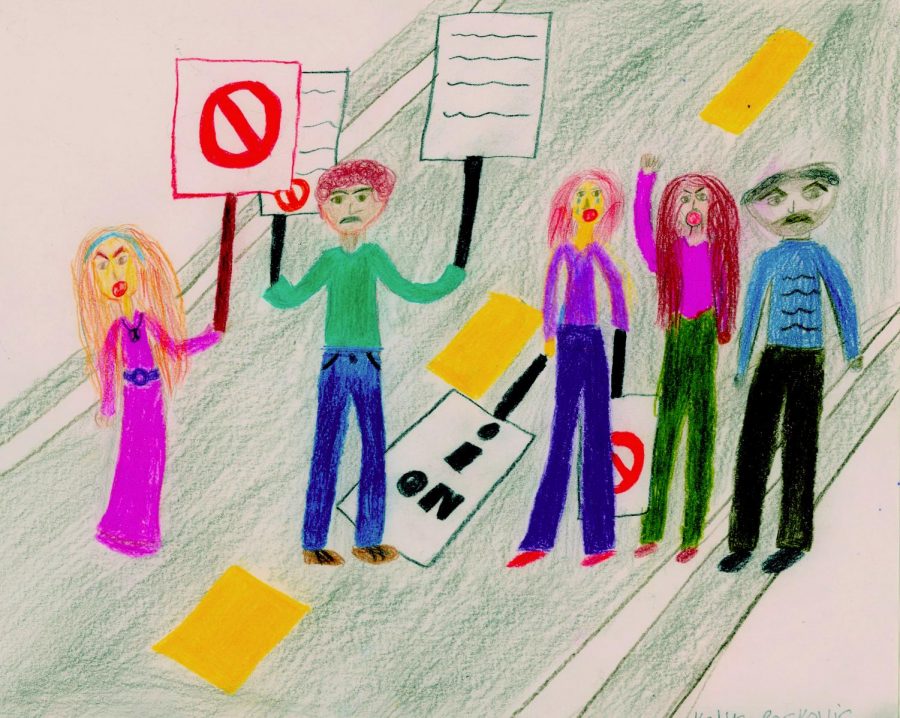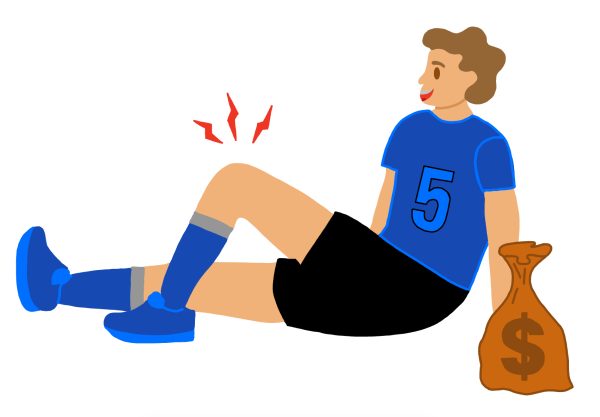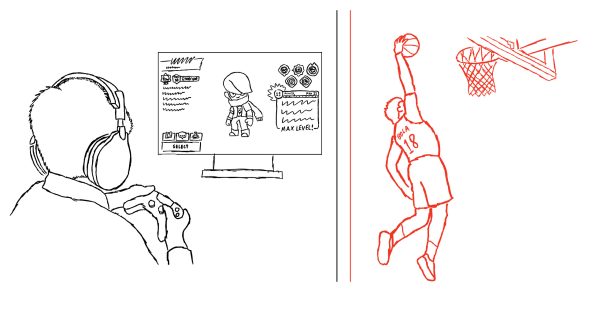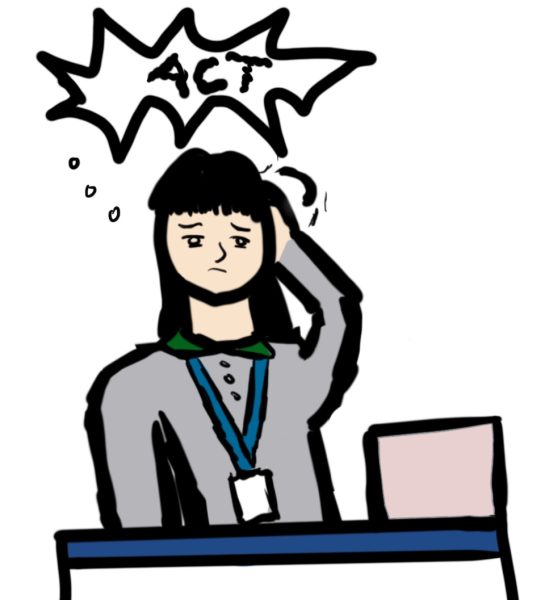Protests lacking purpose prove fruitless
Similar to the late sixties and early seventies, the modern day is full of protests. Whether it is taking a knee during the national anthem or smashing a purchased product, protesting does nothing more than bring some form of attention to the cause. One major problem with protesting is that it can be wildly misinterpreted, leading to a debate on whether the structure of protesting is right or wrong. This directly applies to Colin Kaepernick, and other football players that have been kneeling during the national anthem. It would be much more effective to donate money to organizations and spend time with those who need it, rather than taking a knee and doing that on the side. Even if a protester does both, the problem is that people will not support them, because they believe they are doing something wrong by protesting.
Whether it is correct or not, protesting distracts from a problem that would be better off by direct contribution. Colin Kaepernick was recently named GQ’s citizen of year for the contributions he gives to organizations and not for kneeling. Although J.J. Watt arguably deserves the award for raising over thirty three million dollars for Hurricane Harvey victims. Kaepernick being chosen for this award would be much less controversial if did not partake in the useless protesting of kneeling during the national anthem.
Kneeling is fruitless because it has no positive effect on society other than publicity, which leads to controversy and problems. However, this does not mean that all forms of protest are pointless. If a problem is truly evil and in need of public action and change, such as racism in the south during the sixties, protesting can have a favorable effect. The protests in the south during that time were much more effective because there was a feasible goal and a large amount of people realized that those who were racist were wrong. The protesting by kneeling during the national anthem is ineffective, because there is no identified strong majority that agrees with their cause and there is no feasible end. Alongside those factors, many Americans interpret their protest as disrespectful to the military and veterans, making it an even more inefficient way to create actual change. J.J. Watt promoted true, positive change through a massive media campaign to raise funds for Hurricane Harvey victims. While it would be ludicrous for anyone to protest fundraising for the effects of a hurricane, it would be funny to see, J.J. Watt’s method of raising awareness and fundraising lead to a massive contribution by many.
Hurricane Harvey was all over the news for several days, and J.J. Watt took advantage of that for his fundraising by organizing and campaigning for positive change. Taking advantage of Americans who become aware of a problem to promote change works much better than attempting to shove one’s opinion down other people’s throats through protesting. Protesting does not solve problems, nor raise money for it’s targeted cause. Quite often, only negative awareness and unproductive conversation is a result of such protests, dividing society and creating more problems than solutions. Divisive rhetoric does not unite Americans against this alienating topic, especially in a time where Democrats and Republicans refuse to agree on almost everything.
Actions like J.J. Watt’s unite everyone for a greater good and it leaves everyone with a feeling of positivity and hope for a better world. It does not lead to debates in ethics or social studies classes on whether their actions are wrong. While some problems may be rather controversial, true action will lead to those problems being fought against much less, which would help their cause much more than being debated on. Protests tend to pull at the seams of a problem, which leads to the problem becoming much more open to debate and less about action to help. People should organize together to help rather than to protest to fix problems in society. Protesting is often ineffective, and will never be as effective as directly addressing the problem.
Your donation will support the student journalists of Saint Viator High School. Your contribution will allow us to purchase equipment and cover our annual website hosting costs.








